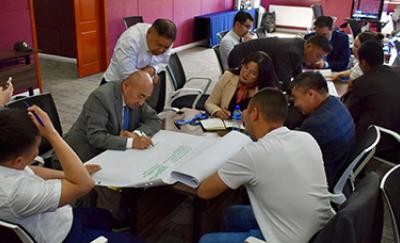

More than 28,000 peer-reviewed journals publish research in English, and more than 2.5 million articles are published worldwide each year. With such a massive amount of knowledge being produced every day, it can be nearly impossible for policymakers and practitioners to stay on top of the research in their fields and make informed choices based on the research. So how can we make sense of this overwhelming amount of information?
The answer is systematic evidence reviews. These reviews use standardized protocols to identify all published and unpublished evidence on a given topic, determine which evidence is relevant, assess the rigor of the evidence, and summarize evidence that meets review standards. Systematic evidence reviews allow us to translate research more effectively, to decrease time-to-market for research findings, and, ultimately, to become smarter, faster.
During the American Evaluation Association’s national conference in New Orleans, Abt presented three exciting advances in systematic evidence review methods and applications that would help democratize evidence. Each has the potential to be truly transformative in advancing connections between research, policy, and practice.




Together, these advances have great potential to transform the ways we use evidence to transform policy and practice—and to do so in a more equitable manner.

To observe the 16 Days of Activism Against GBV, Abt is convening a webinar on engaging men in GBV prevention.

Abt Global is sponsoring and presenting at the Global Digital Health Forum (GDHF) 2024.

Experts from Abt Global will be presenting at the Association for Public Policy Analysis & Management (APPAM) 2024 Fall Research Conference.

Abt Global is hosting the upcoming hybrid LGBTQI+ Inclusive Development Summit on November 19, 2024.


